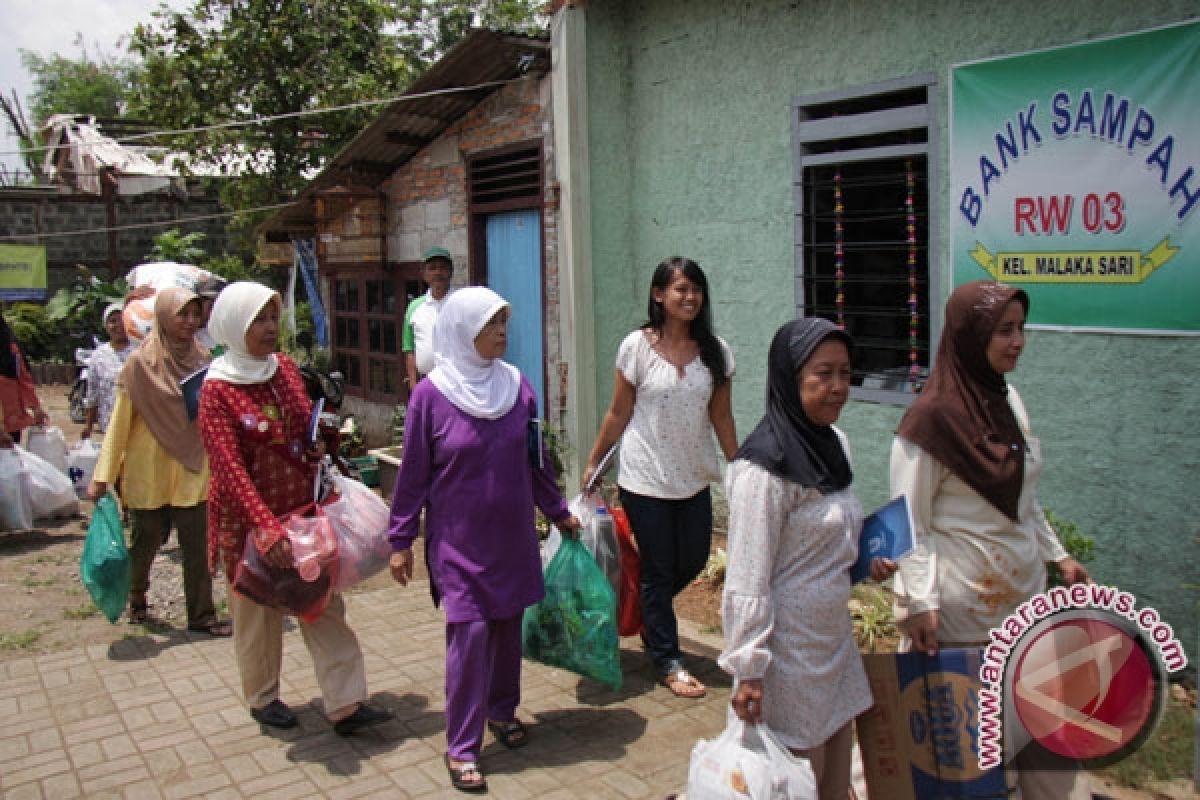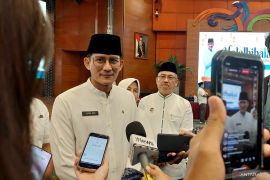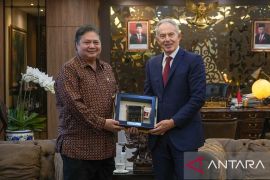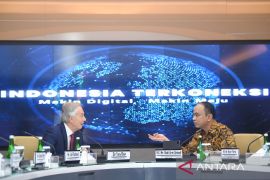The trash bank program is an effective concept to overcome trash problems in a bid to create an environment which is cleaner, healthier, and more comfortable.
Accordingly, Bandarlampung city`s administration will in 2012 realize the use of trash bank to improve environmental cleanliness in the city.
"The city government is at present drawing up the trash bank master-plan to be implemented soon to overcome the trash problem in the city," Lampung regional development planning board spokesman Juhandi Goeswi said in Bandarlampung on Thursday.
In addition to Bandarlampung city, Bangka Tengh district government in Bangka-Belitung (Babel) province will in 2012 also implement a trash bank program to reduce the increasing volume of trash in the district.
Bangka Tengah environmental office spokesman Aderi AR said in Kobak on Wednesday that the trash bank program would involve scavengers to collect anorganic trash for the program.
Meanwhile, Riau provincial Chamber of Commerce and Industry (Kadin) chairman Muhammad Herawan said in Pekanbaru, Riau Province, on Friday that the presence of a trash bank in Pekanbaru early next year was expected to stimulate local creative industrial growth.
"We are optimistic that following the implementation of a trash bank program in Pekanbaru by the Ministry of Environment, it will stimulate local creative industrial growth," Herawan said.
He said the presence of a trash bank would help improve the local people`s economy because those who have the capability to value trash and sort it according to type and sell it to the bank would have an additional income.
"Besides, creative business players at present have a profound interest in economic issues related to environment, and therefore many of them will probably involve themselves in the trash bank program," he said.
Herawan also pointed out that trash with proper sorting and management had a good economic value in the development of people`s economy.
The presence of trash bank in various regions is relevant to the Ministry of Environment`s target to develop at least least 25 trash banks in each of 250 cities across Indonesia by 2014.
With the presence of trash banks, former Environment Minister Gusti Muhammad Hatta has said a housewife who had the capability to value the trash and sort it according to its type would have an additional income of around Rp350,000 per month.
"And the trash bank officials can have additional income of around Rp100,000 to Rp400,000 per month," the former minister of environment said in Yogyakarta some time in September.
Due to a lucrative additional income from trash management, all people were invited to actively manage the trash problem properly in order to reduce green house gas emission.
Meanwhile, trash bank initiator in Yogyakarta, Bambang Suwerda, said the garbage bank existence could also change the social status of scavengers who roamed the garbage heaps to pick out inorganic waste.
Bambang said the scavengers who brave the heat to comb through the mountains of trash for anything salable virtually contributed to solve the waste problem.
He added that through the trash bank development program, the scavengers would have clear access to work with waste collectors and waste receptacles in a number of factories.
Seeing that the trash bank management system has been able to empower environmentally-based people`s economy, Bambang said around 150 villages across Indonesia have implemented it.
He said that until recently many areas in the country have implemented waste management through trash bank system.
Following his initiative to introduce the trash bank to the people of Badegan hamlet in Bantul District, Yogyakarta, Bambang was granted a Greenovation Award 2011 by the Agency for Assessment and Application of Technology (BPPT) on November 30, 2011.
"The granting of the Greenovation Award 2011 is for the success of `Gemah Ripah Trash Bank` to civilize and propagate the spirit of environmentally-friendly trash management among the local community," Bambang said in Bantul recently.
He pointed out that the people of Badegan hamlet had been trained and encouraged to be used to managing wastes with the concepts of reducing, sorting, using, recycling, and saving them.
Trash bank as part of efforts to overcome ubiquitous problem in Indonesia is also able to empower the people`s economy at grassroots level.
Trash is actually a ubiquitous problem in Indonesia as the people either burn their garbage in front of their houses or simply throw it into the rivers, for they have lack of methodical way to deal with it.
Consequently riverbanks in urban as well as rural areas are plagued with massive pile-ups of plastic bottles, empty bags of chips and various types of large and small trash.
But the Ministry of Environment has launched trash bank development program in a bid to raise the circulation of people`s economic value and to reduce the trash problem.
According to Bremen-based Overseas Research and Development Association (BORDA) in Germany, more than 22.5 million tons of garbage are generated in Indonesia every year, and by 2020 Indonesians are expected to throw away 53.7 million tons of waste.
BORDA, a close observer of local government capacity in solid waste management, sees basic problems in Indonesian cities, such as a lack of logistics and equipment to get garbage out of neighborhoods.
But the trash bank development program was expected to reduce the problem and raise the circulation of people`s economic value.
Trash bank is an innovative solution for the people, especially house-makers and children to familiarize themselves with garbage sorting by equating it with money or other valuables that can be saved.
(Uu.O001/HAJM)
Reporter: by Otniel Tamindael
Editor: Priyambodo RH
Copyright © ANTARA 2011












